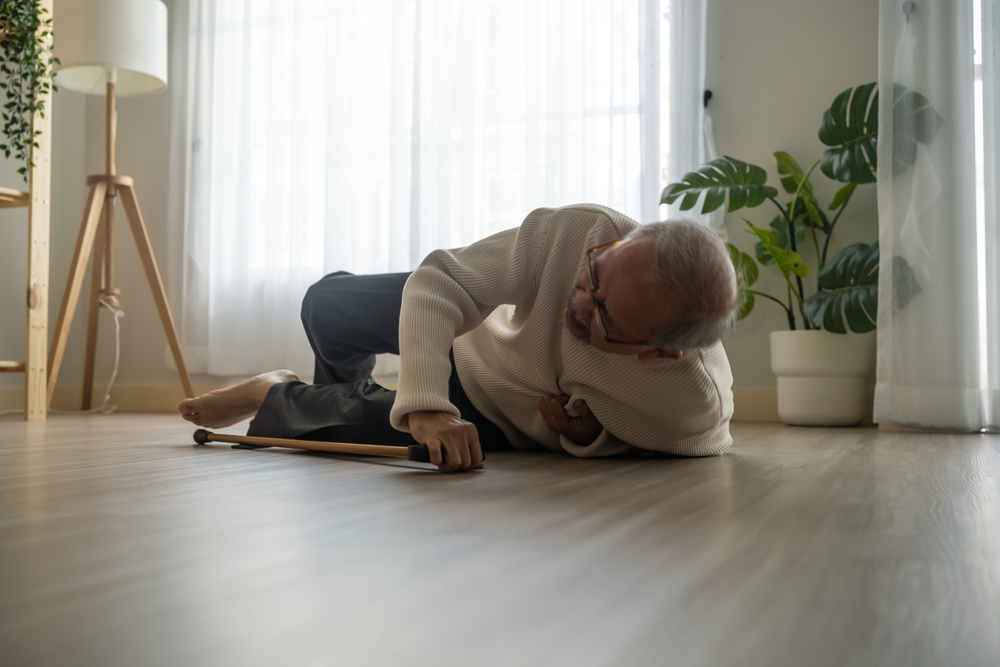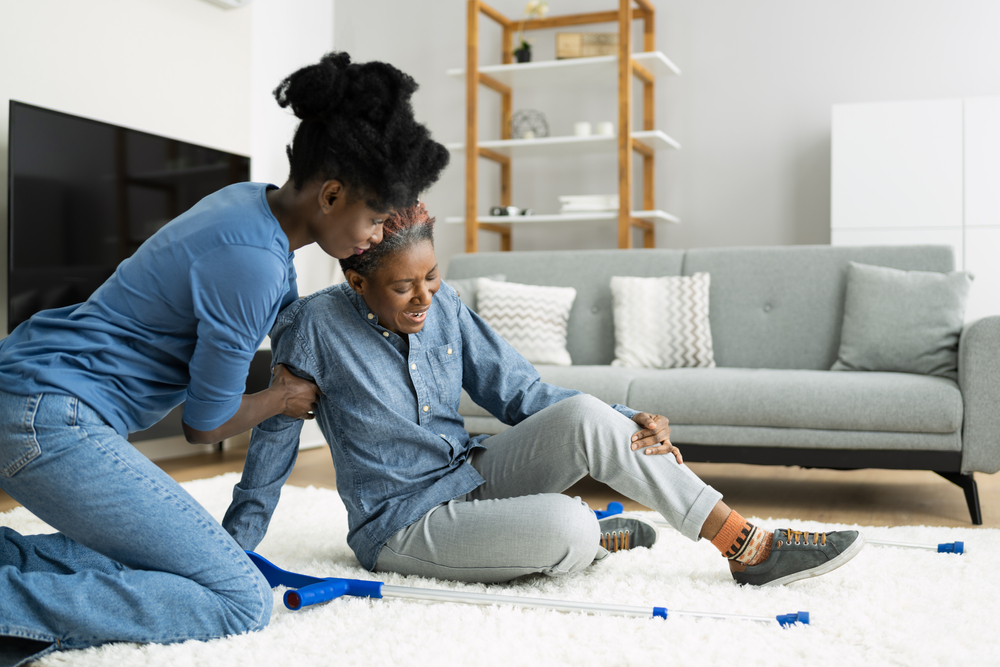Symptoms to Look for After a Fall in the Elderly
Category:

When your loved one suffers from a fall, it can be quite distressing both for them and for you as the caregiver. Thankfully, there are steps you can take to mitigate fall risks and to properly care for your loved one.
In this post, we’ll review:
- Who to call if an elderly person falls
- What to do if an elderly person falls
- Consequences of falls in the elderly
- How long it takes to recover from symptoms of a fall
- How to prevent elderly falling and hitting head
Who to Call When an Elderly Person Falls?
When an elderly patient falls and hits their head and they can’t get up or if they are bleeding, lethargic or if you’re concerned about injury, call 911 immediately. A paramedic will help pick them up and take them to the hospital. Do not attempt to do so yourself as you may cause further harm.
What to Do When an Elderly Person Falls?
When an older adult falls, you should take the following steps:
- Assess the situation. Stay calm and ask them if they’re hurt and can get up on their own. If they’re unable to answer or get up, have them stay down while you check for injuries, such as sprains, bruises, or broken bones. If they’re in too much pain or if you see blood, call 911.
- Keep them hydrated. Offer a snack or a beverage if they need to rest on the ground.
- See if they can stand up on their own. They can start by rolling on their side and then move onto their hands and knees. If they have enough strength, they can push themselves into a standing position. Alternatively, they can crawl over to a sturdy object, such as a chair. They should then grab on and put their dominant foot flat on the floor. Finally, they can slowly rise from a kneeling position and then find a good place to rest once they’re on their feet.
- If they need help, give them assistance. Start by helping them roll on their side and get them on their knees. Find a sturdy object and place it in front of them so they can place their hands on it and push themselves up from a kneeling position. Give them a gentle boost if needed. Once they’re on their feet, find a place for them to rest.
Next, we will look at the numerous signs of elderly deterioration after fall, including symptoms of concussion in elderly after a fall and shock symptoms after a fall.
What Are Symptoms to Look for After a Fall?
Symptoms of shock after a fall, concussion in the elderly after a fall, and symptoms of head trauma after fall in elderly can all occur after an older adult falls. Symptoms to look for after a fall for elderly include:
- Behavioral changes (which can indicate a traumatic brain injury)
- Bruising (which can appear hours after a fall)
- Dehydration (which can cause confusion and/or dizziness)
- Head injuries (symptoms of concussion in elderly can lead to confusion, headache, or loss of consciousness)
- Incontinence
- Irregular heartbeat (which can result from trauma)
- Lacerations (e.g. cuts or deep wounds that might need immediate medical attention)
- Pain (e.g. sprains or fractures)
- Pneumonia
- Restricted mobility (which can be a sign of a serious injury, such as a fracture, severe sprain, or even nerve damage)
- Rhabdomyolysis (which can occur when muscles are damaged)
- Swelling (which can be a sign of fractures)
- Tenderness (e.g. areas tender to the touch, which can signal internal bleeding)
- Tingling (e.g. sensations that can indicate nerve damage)
- Vision problems
- Vomiting
Be sure to discuss any symptoms with a doctor and how to mitigate them.
How Long Does it Take to Recover from a Fall?
There is unfortunately no universal timeline for recovering from a fall. Minor damage can heal in weeks while broken bones can take several months. Meanwhile, traumatic brain injuries can be permanent. Be sure to work with your doctor for the best steps in recovery and for a more accurate timeline.
Download Our FREE Path to Care Guide
How to Prevent the Effects of Falls in Elderly
The best way to prevent the effects of falls in elderly is to remove fall hazards in the first place. Steps you can take include:
- Remove tripping hazards (e.g. loose rugs, cords, wires)
- Brighten up the area (e.g. replace bulbs; add nightlights to hallways and other spaces where people may fall in the dark)
- Add handrails and grab bars in bathrooms, stairways, or other places where it’s easy to slip and fall
- Keep essential items in places that are easy to reach (e.g. a phone to call 911 if needed)
To learn more about our home care services, contact our caregiving team today at 1-800-GRISWOLD or find a Caregiver near you.
Subscribe
Date: 2024-07-23
Category:


